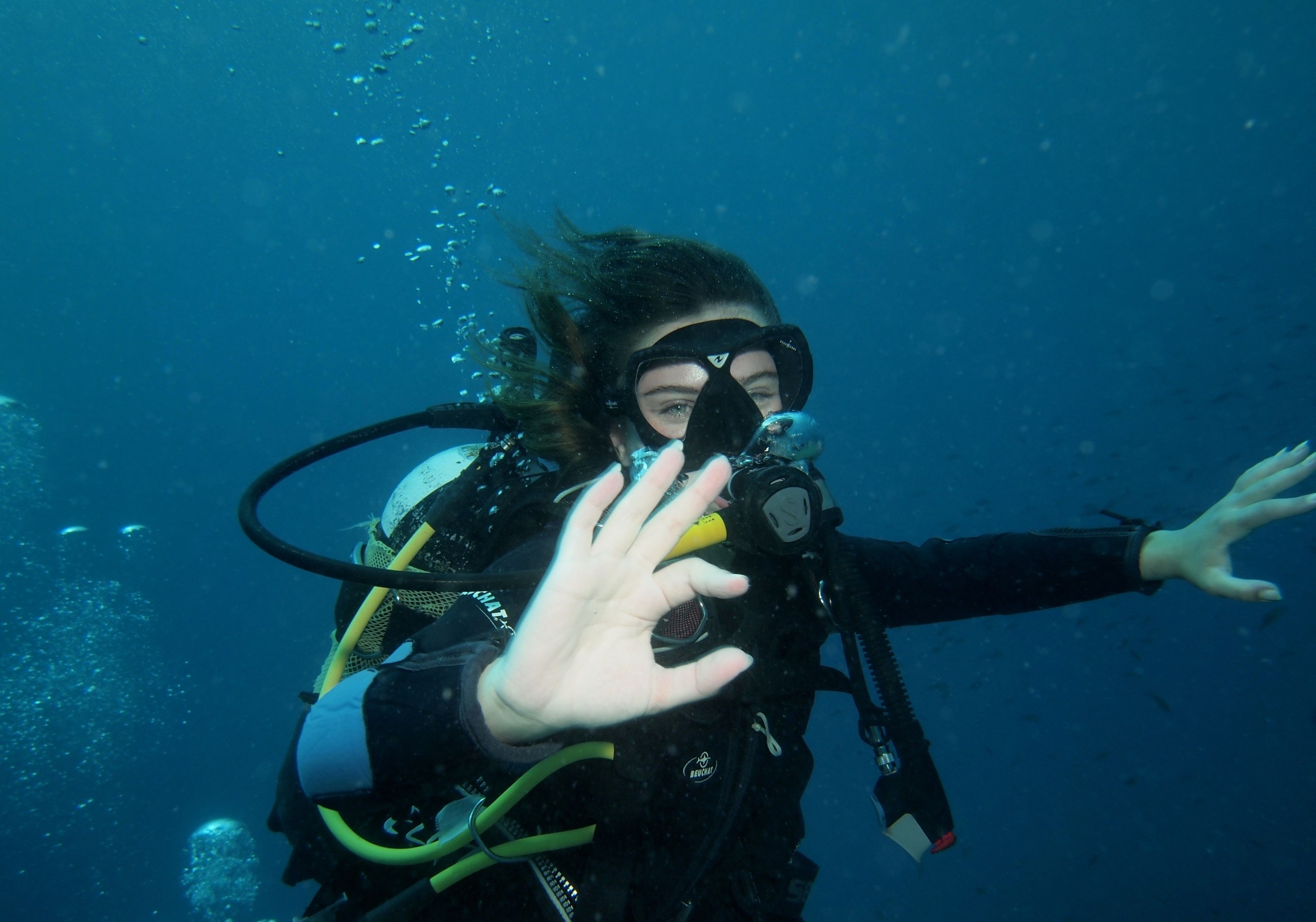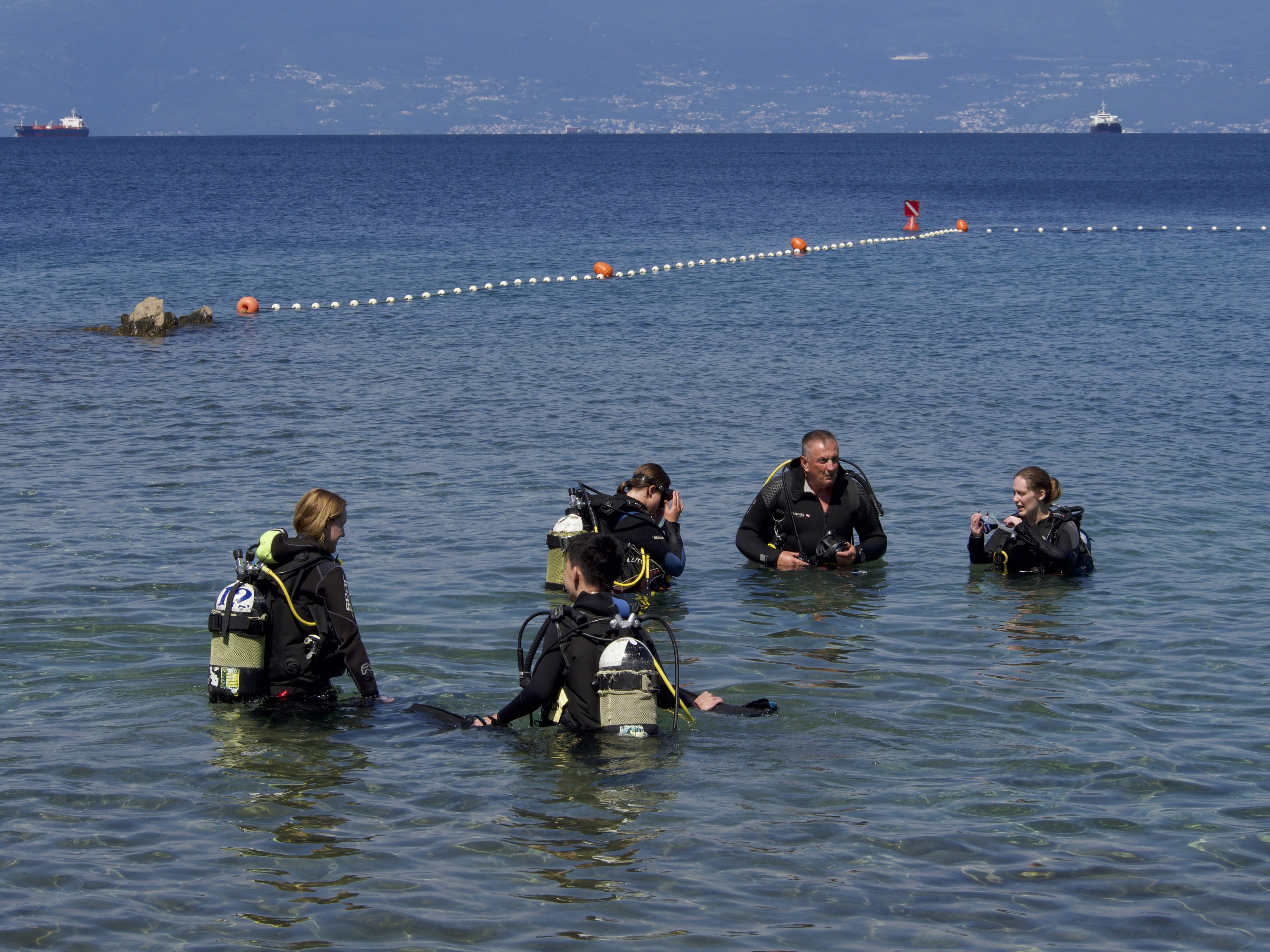The seventh Diving Medicine Summer School has started, with young participants from Canada, the USA, Singapore, Sweden, the Czech Republic, France, Switzerland, Belgium, and Slovenia diving in Rijeka, with local experts educating them on the modern approach to treating various diseases
The first dive as part of the diving course for medical students from around the world took place on July 4th in Kraljevica near Rijeka, marking the start of the Diving Medicine Summer School. This educational programme combines diving and medicine and has been organised for the seventh consecutive year by members of the Croatian Medical Students’ International Committee – CroMSIC
In the Diving Medicine Summer School, students learn how to dive and provide emergency care for a drowning diver. Leading Croatian experts also teach them about underwater and hyperbaric medicine, which is increasingly being applied in various treatments. This branch of medicine not only treats conditions occurring at great depths but also helps to treat burns, frostbite, Crohn’s disease, diabetes, ulcerative colitis...
”Over the past seven years, the Diving Medicine Summer School has achieved quality and international recognition. Traditionally, the project attracts young students from around the world to Croatia to learn about underwater, hyperbaric, and submarine medicine, and this year is no exception. The project’s success encouraged us to launch a version specifically for students of the Faculty of Medicine in Rijeka. We began this initiative last year, successfully educating ten students; this year, we have another ten interested students. This is my first year as project manager, so I would like to thank my predecessors for their accomplishments so far. I hope to enhance the Diving Medicine Summer School further, making it even better and more attractive to young students from around the world in the future,” says Bruno August, Head of Diving Medicine Summer School at the Croatian Medical Students’ International Committee – CroMSIC.
The Diving Medicine Summer School attracts students from all over the world every year. This time, participants have come to Croatia from Canada, the USA, Singapore, Sweden, the Czech Republic, France, Switzerland, Belgium, and Slovenia to gain new knowledge from local experts.
”In 1993, we initiated this course as students with the aim of attracting foreign students to come to Croatia for exchanges. At the time, we were not a popular tourist destination due to the war. Now, I am delighted that we have taken this project to a new level, combining hyperbaric medicine, science, drowning rescue courses, and diving. Participants come from various countries to learn from our experts what they cannot do in their own countries, and some even return to do scientific research with us," says Igor Barković, head of the Centre for Research and Education in Undersea, Hyperbaric and Maritime Medicine.
JGL has supported the work of the Diving Medicine Summer School for many years, recognising the project’s significant contribution to promoting sustainable development within the local community through science.
”JGL is a socially responsible company that actively supports the academic and professional community and projects that positively impact health and quality of life. The company has a deep connection to the sea, as reflected in one of our flagship products, which harnesses its benefits. For all these reasons, we support the Diving Medicine Summer School and are delighted to see the project attract an increasing number of young people from around the world each year. Their dedication to educating future generations of experts is crucial not only for advancing underwater sports and recreation but also for the evolution of this modern field of medicine," stated Alenka Jajac-Knez, Director of Market Operations at JGL.
Project partners include the Clinical Hospital Centre Rijeka, KPA Adria, Student Centre Rijeka, Rijeka Tourist Board, Rijeka Faculty of Medicine, and the University of Rijeka.





